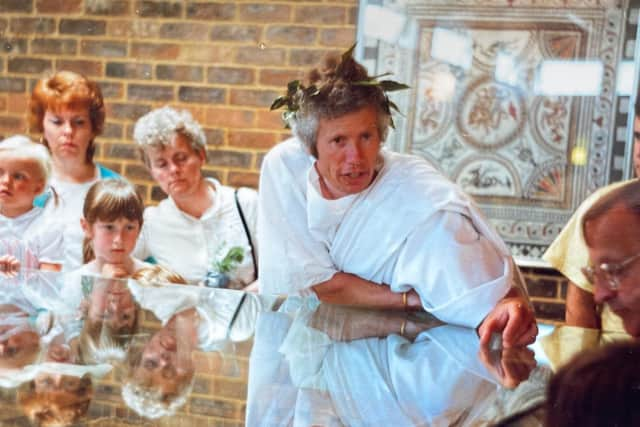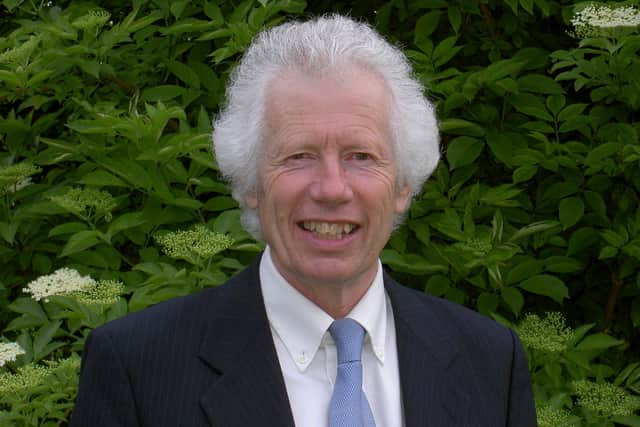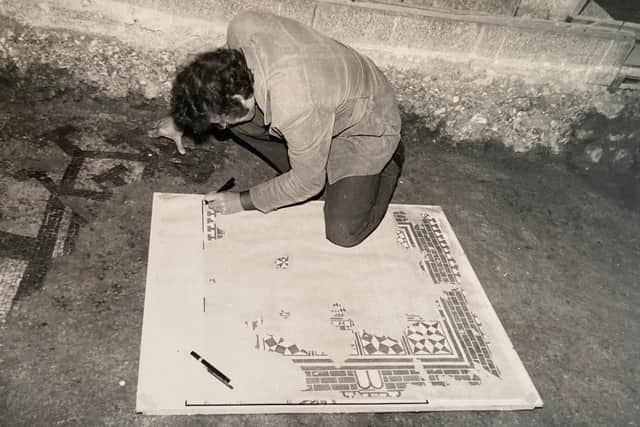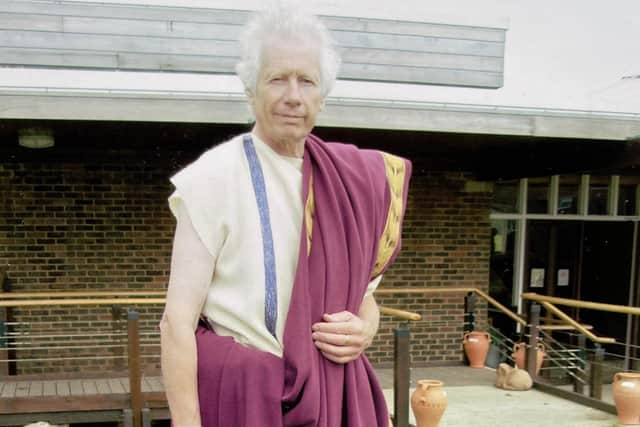Death of Fishbourne Roman Palace stalwart will be felt by 'generations of aspiring archaeologists'
and live on Freeview channel 276
Tributes have been paid to Fishbourne Roman Palace’s longest-serving member of staff, David Rudkin.
David, who was the museum director for 29 years — from 1979 to 2008 — lived with Parkinson’s disease, and died on Monday, August 2.
Advertisement
Hide AdAdvertisement
Hide AdThe news came as a ‘great blow’ to colleagues, friends and the local and wider archaeological community.


Rob Symmons, curator at Fishbourne Roman Palace, said: “He was not only the longest serving director the site has seen but the longest ever serving member of staff.
"During his tenure he led the palace through innumerable changes and on his retirement left an organisation barely recognisable from the one he inherited from his predecessor, Margaret Rule, nearly 30 years earlier.”
As director, David oversaw the establishment of the palace’s schools’ education programme.
Advertisement
Hide AdAdvertisement
Hide Ad“From relatively modest beginnings it soon flourished and by his retirement, the site was welcoming nearly 25,000 schoolchildren annually,” Rob added.


“Without David’s foresight and passion for sharing Roman history and archaeology, a huge proportion of the population, including many who went on to forge successful careers in archaeology and the classics, would have been deprived of the chance to be inspired by the site he loved so much.”
Even as his retirement approached, David was ‘not one to duck a challenge’ and still managed a wholesale refurbishment of the museum. This ensured the survival of the site’s mosaics ‘for years to come’.
Rob continued: “Simultaneously, he was instrumental in the construction of the Collections Discovery Centre, a purpose-build artefact store that combined his core values of archaeological conservation, research and visitor engagement. This achievement alone, in the last five years of his directorship, is more than most could hope to achieve in an entire career.
Advertisement
Hide AdAdvertisement
Hide Ad“David was perhaps most at home with a trowel in his hand, and his time at Fishbourne was punctuated by him leading often ground-breaking excavations. Not least, his discovery of the


‘Fortress Mosaic’ in the early 1980s and co-directorship of a programme of excavations in the late 1990s and early 2000s, which continue to make waves in the academic community.”
David’s excavations were described as ‘happy places to work’ and were always published in a ‘timely and professional manner’.
Rob said David was a ‘proudly independent person’ so his diagnosis of Parkinson’s disease ‘must have been hard to bear’.
Advertisement
Hide AdAdvertisement
Hide Ad“He was born stoically nonetheless, and did not stop David from returning to Fishbourne, post-retirement as a volunteer.


“During this time, he shared his encyclopaedic knowledge of the site freely, captioning over 10,000 archive slides – a task that no other person could ever have completed.
“David’s legacy lives on at Fishbourne and he is often quoted, even by staff who were never lucky enough to have met him.
"He commanded, but never demanded, respect on the site, in the community and in the archaeological world. A good humoured (his puns were legendary), patient and gentle character, his passing will be felt, not only by those who knew him, but by generations of aspiring archaeologists to come.”
Advertisement
Hide AdAdvertisement
Hide AdAndrew Edwards, chief executive of Sussex Archaeological Society, said that, without David, the palace 'would be a shadow of the site we see today'.
He added: "During his time as director at Fishbourne Roman Palace, David led the site through immense changes, including setting up Fishbourne’s education department, conserving many of the mosaics, and building the Collections Discovery Centre.
“David was hugely popular among staff and colleagues in the society, as well as in the local and wider archaeological communities.
"It was very difficult not to immediately like and admire him. He devoted much of his working life to the society and to archaeology and will be greatly missed by all.”
Comment Guidelines
National World encourages reader discussion on our stories. User feedback, insights and back-and-forth exchanges add a rich layer of context to reporting. Please review our Community Guidelines before commenting.